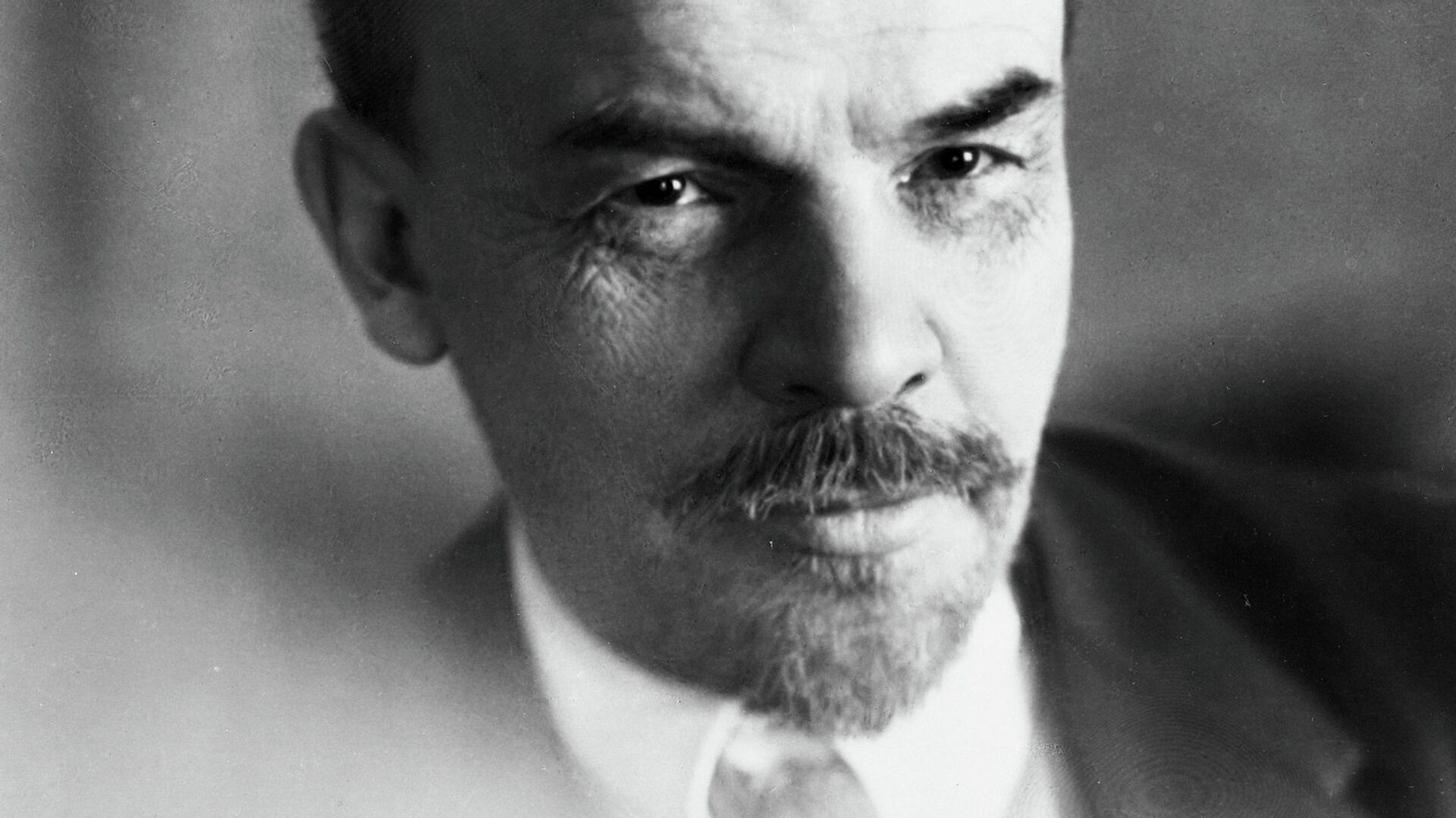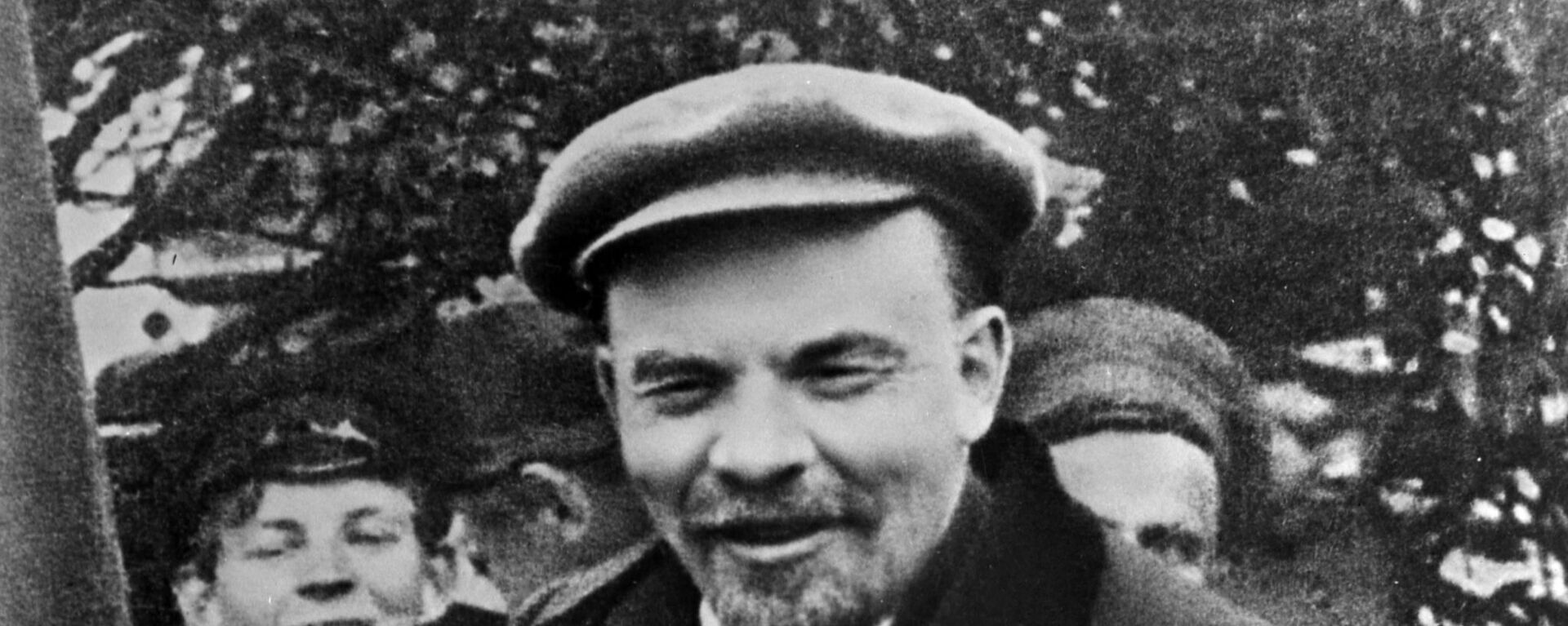https://sputnikglobe.com/20220512/finland-prepares-to-ditch-its-last-lenin-statue-over-ukraine-conflict-1095451461.html
Finland Prepares to Ditch Its Last Lenin Statue Over Ukraine Conflict
Finland Prepares to Ditch Its Last Lenin Statue Over Ukraine Conflict
Sputnik International
Since the beginning of Russia's special operation in Ukraine, a number of European nations, including Poland, Lithuania and Bulgaria, have chosen to remove... 12.05.2022, Sputnik International
2022-05-12T06:37+0000
2022-05-12T06:37+0000
2022-05-12T06:37+0000
russia's special operation in ukraine
finland
scandinavia
russia
ukraine
vladimir lenin
history
soviet union
https://cdn1.img.sputnikglobe.com/img/19138/71/191387115_0:577:1522:1433_1920x0_80_0_0_9546fa0acd8eaab693dc060d074c2a16.jpg
In recent weeks, the bust of Vladimir Lenin in the southern Finnish city of Kotka has found itself the focus of a national debate, as the municipality has already received requests to remove the country's last remaining statue of the Russian revolutionary and founding father of the Soviet Union.Two-thirds of respondents in an online survey by local newspaper Kymen Sanomat said they would like the Lenin statue to be removed from the city park.Finland's statues of Lenin have come under greater scrutiny since Russia's special operation to demilitarise and de-Nazify Ukraine and protect the breakaway republics of Donbass.Critics have argued that the sculptures insult the Soviet Union's victims, whereas fans have argued the they are rooted in the very history of Finland and should be considered works of art.Kotka sociology professor Juhani Pekkola is one of those who wants the Lenin statue to be removed. He emphasised that Kotka was one of the cities bombed during the Winter War with the Soviet Union and that glorifying its founder therefore sends the wrong message.By contrast, Russian researcher Reeta Kangas of the University of Turku would like to save monuments that may occupy an uncomfortable place in the public conscience.She even suggested that the reason Turku had decided to remove the city's Lenin statue was an example of politicisation.Kalle Kallio, the director of the Lenin Museum in Tampere, the only surviving museum dedicated to the revolutionary outside Russia, sees no connection between Russia's special operation of Ukraine and the removal of the Lenin statues, and considers the move inconsistent.In mid-April, the city of Turku decided to remove its Lenin statue from the city centre. It received the statue as a gift in 1977 from St Petersburg, which at that time was called Leningrad.The Kotka sculpture was received as a gift in 1979 from its Estonian twin city of Tallinn (at the time Estonia was part of the Soviet Union). Since then, the statue has been the target of vandals and protesters.Finland has a complicated history with the founder of the Soviet Union: Lenin spent time in Finland during the turn of the century and even met his successor, Stalin, there for the first time. In 1917, as the head of the young Soviet state, he signed the documents granting independence to Finland, a former Grand Duchy of Russia.Since the start of Russia's special operation in Ukraine, a number of European nations have opted to remove Soviet monuments, including those of Second World War heroes and liberators, because of their “Russian connection”. Among others, Poland, Lithuania and Bulgaria chose to rid themselves of Soviet monuments.Russia has denounced these moves as ignorant of history.“Admirers of neo-Nazism once again bare their face – and it turns out to be bloody. The demolition of monuments to Second World War heroes, the desecration of graves, and now the disruption of the flower-laying ceremony on a day that is sacred for every decent person prove the glaringly obvious: the West has set a course to reincarnate fascism”, the Russian Foreign Ministry's spokeswoman, Maria Zakharova, wrote.
https://sputnikglobe.com/20220429/finnish-city-takes-down-lenin-statue-over-ukraine-conflict-1095138276.html
finland
scandinavia
ukraine
soviet union
Sputnik International
feedback@sputniknews.com
+74956456601
MIA „Rossiya Segodnya“
2022
News
en_EN
Sputnik International
feedback@sputniknews.com
+74956456601
MIA „Rossiya Segodnya“
Sputnik International
feedback@sputniknews.com
+74956456601
MIA „Rossiya Segodnya“
finland, scandinavia, ukraine, vladimir lenin, history, soviet union
finland, scandinavia, ukraine, vladimir lenin, history, soviet union
Finland Prepares to Ditch Its Last Lenin Statue Over Ukraine Conflict
Since the beginning of Russia's special operation in Ukraine, a number of European nations, including Poland, Lithuania and Bulgaria, have chosen to remove Soviet monuments - even those of Second World War heroes and liberators - because of their ostensible “Russian connection”, a move denounced by Moscow.
In recent weeks, the bust of Vladimir Lenin in the southern Finnish city of Kotka has found itself the focus of a national debate, as the municipality has already received requests to remove the country's last remaining statue of the Russian revolutionary and founding father of the Soviet Union.
Two-thirds of respondents in an online survey by local newspaper Kymen Sanomat said they would like the Lenin statue to be removed from the city park.
Finland's statues of Lenin have come under greater scrutiny since Russia's special operation to demilitarise and de-Nazify Ukraine and protect the breakaway republics of Donbass.
Critics have argued that the sculptures insult the Soviet Union's victims, whereas fans have argued the they are rooted in the very history of Finland and should be considered works of art.
Kotka sociology professor Juhani Pekkola is one of those who wants the Lenin statue to be removed. He emphasised that Kotka was one of the cities bombed during the Winter War with the Soviet Union and that glorifying its founder therefore sends the wrong message.
By contrast, Russian researcher Reeta Kangas of the University of Turku would like to save monuments that may occupy an uncomfortable place in the public conscience.
“You can talk about things and not just cart statues off to one of the art museum's warehouses to collect dust. It is difficult to see the monument actually glorifying Lenin anymore, but it has remained a document of the past,” Kangas explained to national broadcaster Yle.
She even suggested that the reason Turku had decided to remove the city's Lenin statue was an example of politicisation.
Kalle Kallio, the director of the Lenin Museum in Tampere, the only surviving museum dedicated to the revolutionary outside Russia, sees no connection between Russia's special operation of Ukraine and the removal of the Lenin statues, and considers the move inconsistent.
“Helsinki's Senate Square has a statue of Tsar Alexander II. In our history, he is the 'good tsar' who allowed the use of the Finnish language and during which time our national currency was launched. If we don't accept Lenin, then why do we accept Alexander II?” Kallio asked.
In mid-April, the city of Turku decided to remove its Lenin statue from the city centre. It received the statue as a gift in 1977 from St Petersburg, which at that time was called Leningrad.
The Kotka sculpture was received as a gift in 1979 from its Estonian twin city of Tallinn (at the time Estonia was part of the Soviet Union). Since then, the statue has been the target of vandals and protesters.
Finland has a complicated history with the founder of the Soviet Union: Lenin spent time in Finland during the turn of the century and even met his successor, Stalin, there for the first time. In 1917, as the head of the young Soviet state, he signed the documents granting independence to Finland, a former Grand Duchy of Russia.
Since the start of Russia's special operation in Ukraine, a number of European nations have opted to remove Soviet monuments, including those of Second World War heroes and liberators, because of their “Russian connection”. Among others, Poland, Lithuania and Bulgaria chose to rid themselves of Soviet monuments.
Russia has denounced these moves as ignorant of history.
“Admirers of neo-Nazism once again bare their face – and it turns out to be bloody. The demolition of monuments to Second World War heroes, the desecration of graves, and now the disruption of the flower-laying ceremony on a day that is sacred for every decent person prove the glaringly obvious: the West has set a course to reincarnate fascism”, the Russian Foreign Ministry's spokeswoman, Maria Zakharova, wrote.



